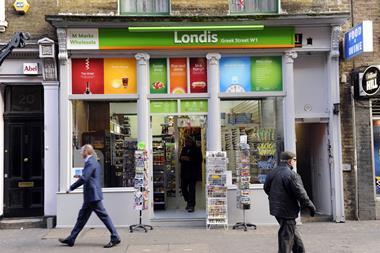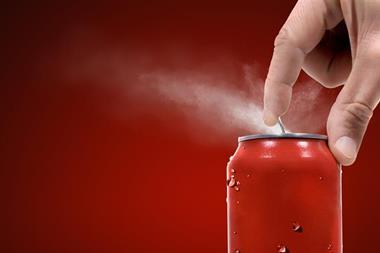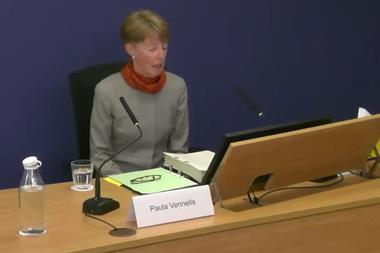Politicians, financial chiefs and economic commentators are saying that, finally, we are emerging from recession. But what do retailers say? Our exclusive survey reveals what retailers think about the long-term effects of the recession, and whether the recovery is happening equally in all parts of the country
Unemployment is falling, the economy is growing again, and everyone in power is claiming credit for an economic recovery. According to the Office for National Statistics, unemployment fell by 125,000 to 2.34 million in the last three months of 2013. This means that more than 30 million people have jobs and, according to statistics at least, only 1.4 million of them part-time.
After a double-dip recession, the economy is growing again with several consecutive quarters of growth. And we’re doing well compared with our national peer group, too, with international experts predicting that the UK’s recovery will outpace any other country in Europe. So all looks rosy again.
But is the recovery being felt at ground level in local stores? And does it depend where you are located? And, even more significantly, have the years of recession changed shoppers’ outlook so profoundly that they are going to remain careful with their spending regardless of any improvement in their personal circumstances? In order to answer these questions, C-Store joined forces with HIM to survey more than 100 retailers, both in the north and the south of Britain, and the results are reported over the following pages.
Arjan Mehr, who runs a Londis store in Bracknell, Berkshire, is already feeling that things have turned a corner. “I’m optimistic about the next 12 months, in spite of increasing competition,” he told C-Store. “We’ve halted the decline from the convenience perspective and people are spending more on luxury goods and are eating well. Two years ago it was looking bleak and the pressure was on to cut prices. Now we’re about 4-6% up.”
In the north east of England, Saki Ghafoor, who has two Nisa stores in Gateshead and Ashington, has a slightly different perspective. “I know the TV reports are saying it’s all about economic recovery now, but I’m not sure if that’s actually happening,” he says. “It doesn’t help when firms such as Morrisons are posting a 5.6% drop in sales which affects the outlook of the whole industry.”
Despite this, he is continuing to invest, but not with complete confidence. “A lot of people are sitting back and waiting to see what happens with the economy. But we have invested and put a new combi-post office in the Gateshead store, which gives us extra services to get extra footfall and trade - but it’s early days.”
Your experience of green shoots
| What are your thoughts on the economic recovery? | Total | North | South |
|---|---|---|---|
| The economy shows no signs of recovery | 48% | 54% | 42% |
| I am optimistic of economic recovery in the next year | 39% | 38% | 40% |
| The recovery has already started and will continue to improve over the next 12 months | 13% | 8% | 18% |
Retailer’s view
Bay Bashir, Lifestyle Express, Middlesbrough

“I’m optimistic about the economy. It’s going to be another tough year, but I’m confident we’ll see an uplift in sales and turnover. It’s been the best January I’ve ever seen, with sales up 8-9% in both my stores. “There’s been no clear reason, such as nearby stores closing or exceptionally cheap deals in my store. The weather hasn’t been much of a factor, either. Last January was probably the worst of the past few years.”
| Has shoppers’ spending power improved in the past year, compared with when the recession first hit? | Total | North | South |
|---|---|---|---|
| Yes, they are spending a lot more | 6% | 6% | 6% |
| Yes, they are spending a little more | 19% | 18% | 20% |
| No, it has stayed the same | 31% | 30% | 32% |
| No, they are spending a little less | 23% | 22% | 24% |
| No, they are spending a lot less | 21% | 24% | 18% |
The economy’s impact on your business
| How are your sales and profits performing? | Total | North | South |
|---|---|---|---|
| Sales are growing and so is profit | 3% | 2% | 4% |
| Sales are growing but profit is in decline | 1% | 2% | 0% |
| Sales are growing and profit is steady | 5% | 6% | 4% |
| Sales are in decline and so is profit | 30% | 34% | 26% |
| Sales are in decline but profit is growing | 1% | 2% | 0% |
| Sales are steady and so is profit | 32% | 32% | 32% |
| Sales are steady but profit is in decline | 13% | 4% | 22% |
| Sales are steady but profit is growing | 15% | 18% | 12% |
Retailer’s view
Sat Deo, Costcutter Wath, South Yorkshire

“It doesn’t surprise me that there aren’t many retailers reporting growing sales. When I go to the cash and carry, no one is particularly excited about their sales; everyone just says business is ticking over. Both our sales and our profits are up, but it isn’t easy. You have to offer a point of difference and consistently high standards to get results. “BOGOFs and multibuys work well for us – you get lots of volume through. I’d agree that pound ranges sell well, but you have to be careful. If you stock too many pound lines you won’t get very high margins. “Throughout last year we saw that people were looking for bargains, but since the turn of the year people are a bit more confident now and we’ve seen an upturn in trade.”
| Which of the following shopper habits have you witnessed? | Total | North | South |
|---|---|---|---|
| More careful with spending | 49% | 54% | 44% |
| Sticking to a budget | 44% | 50% | 38% |
| Shopping around for the best prices | 25% | 20% | 30% |
| Shopping more at supermarkets and less at c-stores | 25% | 20% | 30% |
| Spending less money per shop | 22% | 14% | 30% |
| Open to impulse purchases | 8% | 10% | 6% |
| Spending more money per shop | 5% | 0% | 10% |
| Shopping less at supermarkets and more at c-stores | 5% | 4% | 6% |
| Staying at home more because they have less money | 2% | 2% | 2% |
| None of the above | 6% | 8% | 4% |
| What types of pricing mechanisms do you find most successful? | Total | North | South |
|---|---|---|---|
| BOGOF | 30% | 28% | 32% |
| Meal deals | 3% | 2% | 4% |
| Multibuys | 16% | 24% | 8% |
| Pound zones | 11% | 14% | 8% |
| Round pound | 34% | 28% | 40% |
| Don’t know | 6% | 4% | 8% |
| Have you sold more items on promotion compared with two years ago? | Total | North | South |
|---|---|---|---|
| Yes | 63% | 62% | 64% |
| No | 13% | 14% | 12% |
| The same | 24% | 24% | 24% |
Adapting to changing shopper needs
| How have you adapted your business in response to the recession? | Total | North | South |
|---|---|---|---|
| Introduced value ranges | 53% | 60% | 46% |
| Increased percentage of products on promotion | 41% | 50% | 32% |
| Increased pricing mechanisms that customers perceive to be good value eg round pounds | 25% | 30% | 20% |
| Reduced staff hours | 23% | 22% | 24% |
| Reduced energy usage | 21% | 18% | 24% |
| Cut back on store investment | 9% | 6% | 12% |
| Increased store investment | 6% | 8% | 4% |
| Cut back on short-life products | 3% | 0% | 6% |
| Cut back on Christmas stock | 1% | 2% | 0% |
| More focus on premium products | 1% | 2% | 0% |
| I’ve done nothing | 19% | 16% | 22% |
Retailer’s view
Hiral Patel, Londis Claygate, Surrey

“Round pound deals such as ‘two for £10’ on wine have been key to keeping sales buoyant during the recession. Multibuys are also really popular. We’ve currently got all of our lagers on at ‘four for £4’. The margins aren’t great, but it’s all about generating turnover and selling as much as possible.
“We’ve also introduced pricemarked packs wherever we can, and particularly on categories such as tobacco. Introducing new and innovative ranges has also helped preserve footfall. Electronic cigarettes have been a big success story for us; we now sell three different brands, E-Lites, Vype and Vapestick. ”
| In today’s climate, how do you manage your product range? | Total | North | South |
|---|---|---|---|
| I tend to adapt my range based on what promotions are available from my symbol group/wholesaler | 72% | 74% | 70% |
| I stick fairly rigidly to a core range | 38% | 34% | 42% |
| I encourage suppliers to visit my store and relay fixtures with whichever products they recommend | 20% | 26% | 14% |
| How are you trying to convince customers to spend more per visit? | Total | North | South |
|---|---|---|---|
| Promotions | 73% | 78% | 68% |
| Discount pricing | 34% | 40% | 28% |
| New product ranges | 16% | 20% | 12% |
| Introducing new services | 11% | 10% | 12% |
| New store layout | 11% | 10% | 12% |
| Loyalty schemes | 9% | 10% | 8% |
| In-store tastings | 6% | 8% | 4% |
| Second siting baskets | 4% | 2% | 6% |
| Home delivery | 1% | 2% | 0% |
Spending money on your business
| Will you be investing in your business this year? | Total | North | South |
|---|---|---|---|
| Yes, I will be investing in new equipment | 17% | 18% | 16% |
| Yes, I will be investing in a major refit or expansion | 12% | 8% | 16% |
| Yes, I will be investing in a minor refit or expansion | 9% | 6% | 12% |
| Yes, I will be investing in staff training and/or recruitment | 6% | 4% | 8% |
| Yes, I will be investing in a new service | 5% | 6% | 4% |
| Yes, I will be investing in a new store(s) | 2% | 2% | 2% |
| No | 58% | 60% | 56% |
Retailer’s view
Conrad Davies runs two Eurospars and two Spar stores in Wales

“I’m more optimistic this year. The banks seem to be keener to lend and we’ve had a complete refit of the forecourt and it’s paying for itself in energy savings and sales.
“We’ve also just invested in fridge doors in the Eurospar in Blaenau Ffestiniog and put light sensors in. We’re saving about £660 a month and that’s without factoring in the heating and electricity element. We’re also examining how to provide more services and looking at a post office in the Eurospar and a Subway. You have to invest in new equipment, staff training and services that people want to make yourself stand out.”
| Which new product categories or services have you added in the past year to grow your business? | Total | North | South |
|---|---|---|---|
| PayPoint or Payzone | 34% | 38% | 30% |
| Fresh fruit and veg | 23% | 16% | 30% |
| Chilled produce | 20% | 26% | 14% |
| Food to go | 20% | 20% | 20% |
| Parcel collection | 15% | 12% | 18% |
| Lottery | 9% | 10% | 8% |
| Post office | 6% | 4% | 8% |
| European foods | 1% | 2% | 0% |
| Home delivery | 1% | 2% | 0% |
| None | 28% | 26% | 30% |
Retailer’s view

Alpesh Patel, Londis Crouch End, London
“The best time to get things done is when the economy is slow. We invested during the last recession and in this one as well. The trouble is people copy each other so if one doesn’t invest in their business the others don’t. But you can’t run a business by looking at other people.
“I believe this is the best time to invest in equipment or a refit, or anything your shop needs, so that you’ll be ready when things get better. But you have to prepare for it. In the good years you have to be putting money aside for when it’s bad, and how many people do that? You also have to be optimistic about economic recovery because positive thinking creates new ideas, which speeds the recovery.”
The influence on crime rates in your store
| Have you noticed more attempts at retail crime during the recession? | Total | North | South |
|---|---|---|---|
| Yes | 41% | 46% | 36% |
| No, it is better than it was before the recession | 6% | 4% | 8% |
| No, it is the same as before the recession | 53% | 50% | 56% |
Retailer’s view

Scott Jell, Nisa Local in St Dominic’s Square, Bedford
“Crime levels are a lot better now than they were during the recession, but that’s more down to the hard work we’ve put in and the reputation we now have as a store that won’t tolerate crime. But during the recession it got really bad, with shoplifters really going for it at the store. Shoplifting is definitely the crime that most affected us, with some anti-social behaviour as well.”
| What types of crime have you noticed an increase in? Base: All who have noticed crime | Total | North | South |
|---|---|---|---|
| Shoplifting | 90% | 100% | 78% |
| Burglary (breaking into building) | 20% | 17% | 22% |
| Robbery (theft or attempted theft with violence or threat of violence) | 17% | 17% | 17% |
| Anti-social behaviour | 17% | 17% | 17% |
| Vandalism | 5% | 9% | 0% |
| Staff theft | 2% | 4% | 0% |
Retailer’s view
Fred Close, Costcutter Layton, Blackpool

“There were definitely more shoplifters during the recession than before – it made them desperate and willing to steal from stores like ours. We saw different types of people attempt to shoplift because they had less money and saw it as an opportunity.
“Unfortunately, it’s still as bad now that the recession is over as old habits die hard. Shoplifting is the main crime we experience and it’s the one that’s grown the most. Crimes like verbal abuse or assault usually are a reaction to catching someone shoplifting.”























No comments yet